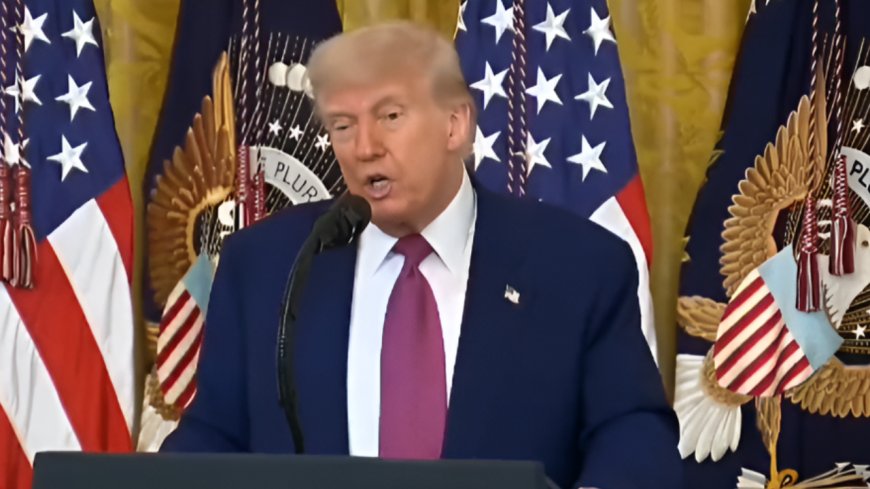'Everybody hates Russia but loves Germany and Japan': Donald Trump reflects on World War II in talks with Macron and Putin; calls it 'a strange world'
Donald Trump spoke about World War II. He mentioned conversations with Emmanuel Macron and Vladimir Putin. Macron spoke of France's victory. Putin highlighted Soviet sacrifices. Trump expressed surprise at America's lack of commemoration. He noted the US role in the Allied victory. He also mentioned Germany and Japan's current status.

'Everybody hates Russia but loves Germany and Japan': Donald Trump reflects on World War II in talks with Macron and Putin; calls it 'a strange world'

A Strange World, Indeed
In his discussions with Macron and Putin, Trump highlighted the complexities of global relationships established during and after World War II. Macron emphasized France’s pride in its victory alongside Allied forces, while Putin shed light on the immense sacrifices made by the Soviet Union during the conflict. Trump expressed his astonishment at the apparent lack of American recognition for its historical role in the Allied victory, particularly as it pertains to a reconciliatory narrative with nations such as Germany and Japan.
America's Historical Oversight
Trump pointed out a striking contrast in the narrative surrounding the aftermath of World War II. While many in America may harbor antagonistic sentiments toward Russia, the former President challenges this viewpoint, invoking the question of why Germany and Japan have been able to rehabilitate their international reputation successfully. This narrative is well reinforced by their transformed roles as democratic allies in contemporary global affairs.
Historical Context Matters
The discussions also serve as a reminder of the shifting sands of historical perception. As Trump navigates these delicate waters, conversations around national identity, historical grievances, and the political landscape come to the forefront. The former president expressed that understanding this evolution of perspectives might help unravel the intertwined relationships that countries maintain today.
Implications for Modern Diplomacy
Trump's comments resonate beyond historical analysis. They indicate the broader implications for modern diplomacy, suggesting that reconciliatory frameworks can be built, even with countries that were once adversaries. As global powers engage in dialogue, it remains vital to acknowledge the past while working collaboratively toward mutual goals.
Conclusion
In sum, Donald Trump's reflections during his talks with Macron and Putin ignite a critical discourse on the complexities of post-war relationships. The intricacies of these historical narratives demand more than surface acknowledgment; they beckon a deeper understanding of global politics. As Trump puts it, "It’s a strange world," emphasizing the need for nations to engage in open dialogue concerning their pasts to pave the way for a more harmonious future.
This isn't just a matter of political commentary; it's a pathway toward shaping perceptions that could redefine alliances based on historical understanding rather than present-day biases. For more updates, visit theoddnaari.







